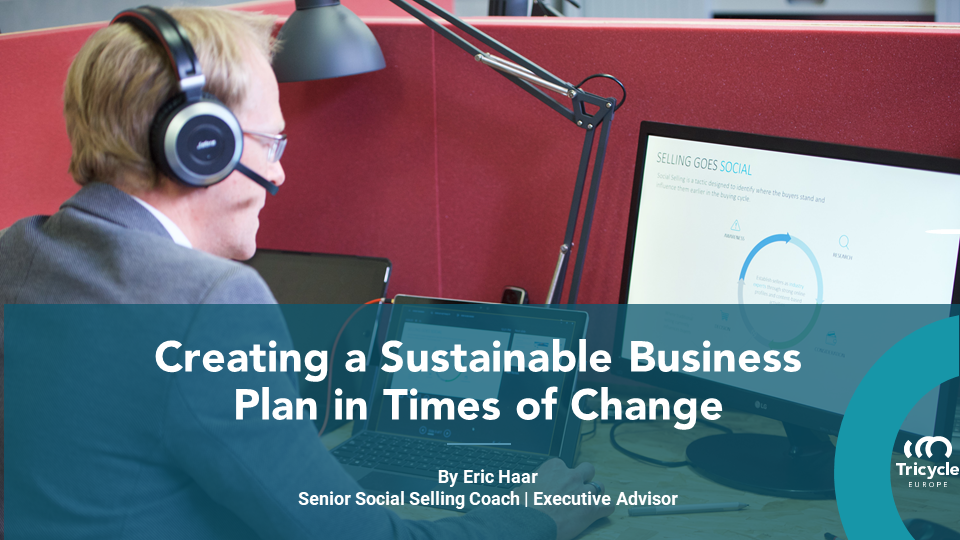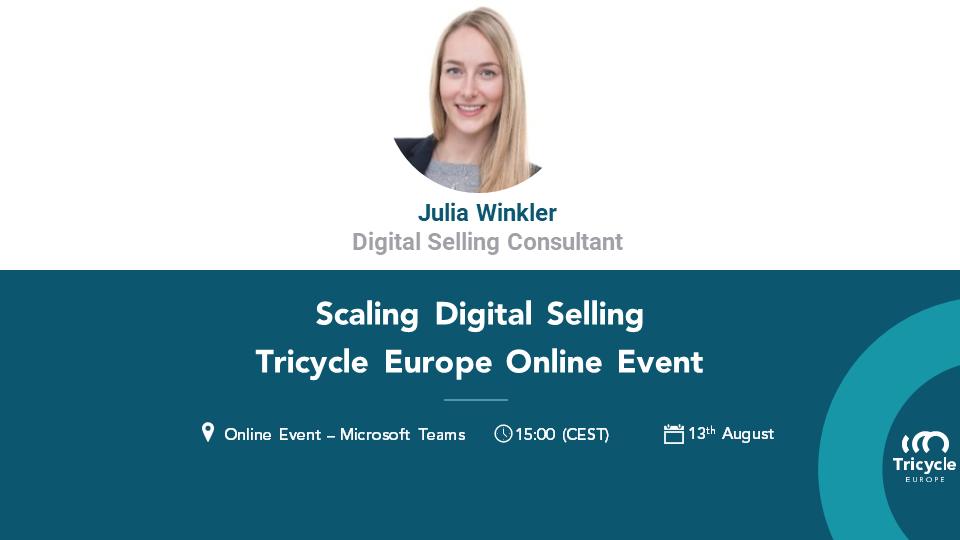After undergoing a dramatic change, you need to have a sustainable business plan. If you don’t like change, you are going to like irrelevance even less. The disruption that took the world by storm a few months ago continues to change the way we all work. Although we have faced the initial wave, and adapted, now it is all about long-term sustainability.
The global pandemic, which triggered this tsunami of change, has left in its wake a truly unsettled landscape. It has drawn a virtual line in the sand for everyone: embrace the disruption, adapt, thrive, or be left behind. Businesses of all kinds are trying to reassess and move forward in uncertain times. This means budget freezes, longer sales cycles, and, ultimately, pipeline decreases for sellers, resulting in fewer deals being closed.
Here are a few tips to think about as you move forward into the next six months:
Isn’t it time to upskill?
Whether you are an executive, department head, or employee, keeping pace with changing times means adapting. Prior to the Pandemic’s disruption, successful companies have already been negotiating their own digital transformation. At the heart of their forward-thinking is adapting to the changing business climate by leveraging new tools and tactics to help keep their competitive advantage.
However, tools can only help if you support those who will be using them, which is why a robust investment in ongoing learning and support must also be made to truly leverage the tools’ potential. Supporting people around a new tool or process is the difference-maker for sustainability and long-term success. Implementing and undergoing continual training has always been key, but at Tricycle Europe, we believe it will play an even more crucial role now.
While sales teams are restructuring to adapt to their customers, they must also adapt internally, arming their entire sales team – not just their top performers- with new digital tools and tactics, and training. Creating a new, sustainable, business process not only takes implementation and adoption, but it also takes a new way to measure success. While many progressive companies have already realigned their KPI priorities, others have not.
Measuring to match what’s important
Placing customer retention and loyalty at the top of the list, pushing the emphasis on quotas down, can help establish a new way forward in the new normal; however, this can only work if you place relationship management through social as a key initiative to complement existing channels.
If you are a Sales Director, committing to make this shift in priorities can open a whole new opportunity for success. Thinking within fiscal quarters has its own pressures and limitations. Quotas demand a short-term view; however, if your business cycle is changing, shouldn’t your measurements?
Quotas demand a short-term view because numbers don’t lie; however, all recent events point to a change in the normal business cycle. If that is indeed the case, shouldn’t you reevaluate your measurements? – Eric Haar
According to LinkedIn’s State of Sales Report 2020 EMEA Edition, there is a shift of focus towards measuring the strength of customer relationships. At Tricycle-Europe, we have always believed in placing relationships as the number one goal for our sustainability as a sales and marketing support company. We agree with the current trend of placing customer retention and loyalty at the top of the KPI list while pushing the emphasis on quotas down. Sure, milestones and benchmarks are needed, but the pass-fail, quarterly quota review of your sellers might need a bit of adjusting. And while everyone finds their way forward in the new normal, readjusting KPIs towards bolstering customer relationships seems like a brilliant move.
A trusted partner
At Tricycle Europe, we believe the key to winning in the social space is by leaning into change and adapting to it with a strategic, top-down approach that upskills everyone in your line of business – not just sales.
By adopting an inclusive, digital, and social selling strategy – merging it with updated company priorities and aligning it with key departments – everyone in your company can grow to become an influential part of your online presence, aligned on a clear objective, to meet your existing and potential customers where they are: social B2B platforms. After all, we are all in sales now.
We believe that the future will be shaped by how people will use digital tools and social platforms. That is why we set the foundation for large organizations to win in the social space. We have helped thousands of marketing and sales professionals to fully leverage the potential of digital strategies.



